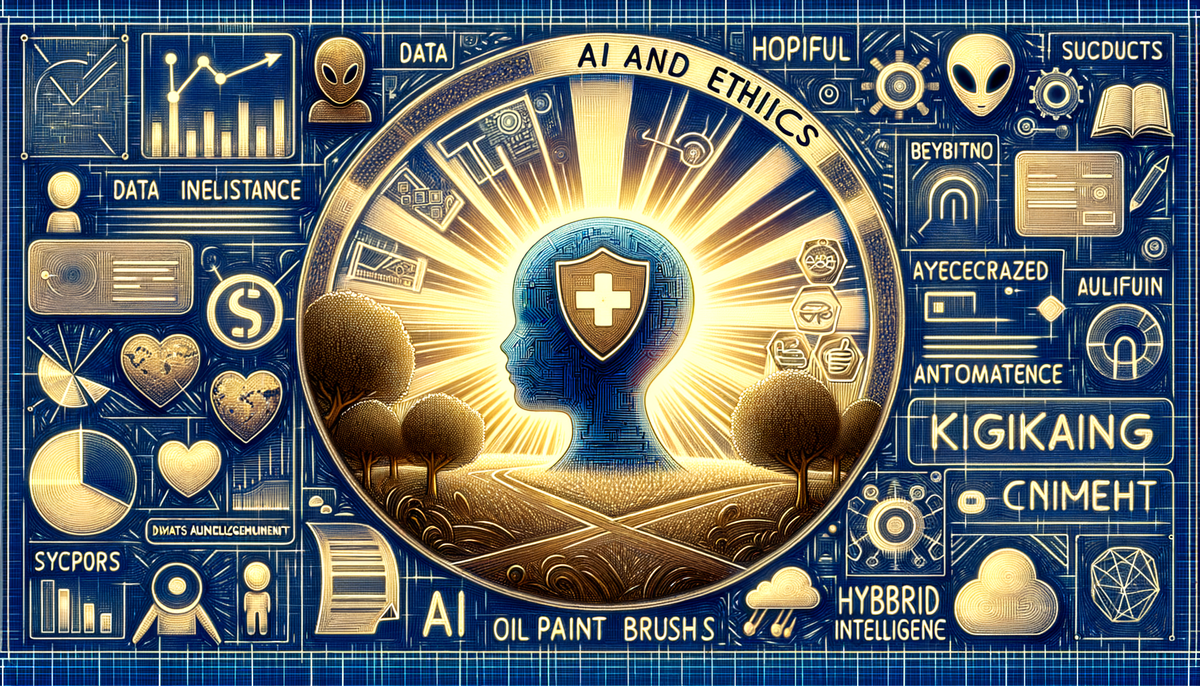Embracing Neuro-Symbolic Intelligence in AI

In today's expansive landscape of artificial intelligence, the converging paths of data compliance, AI investment, hybrid intelligence, and decentralized systems are crafting a new digital paradigm. From overcoming challenges in data privacy to the shifting dynamics of AI chips and the nuanced layers of neuro-symbolic AI, these articles provide a wide-angled lens through which we glimpse the transformation toward an adaptive, responsible, and inventive future.
The present-day AI revolution is fraught with its share of hurdles, particularly concerning data compliance and security. As organizations delve deeper into AI, they face the ongoing task of ensuring data governance aligns with evolving legal standards, a challenge compounded by the rise of generative AI. Companies must deftly balance cutting-edge innovations with stringent regulations to avoid compromising sensitive data and trust. This delicate balancing act underscores the need for robust strategies that simultaneously fortify security efforts and enhance operational efficiencies.
Neuro-symbolic intelligence has been identified as a significant missing piece in the AI continuum. Whereas traditional neural approaches excel at pattern recognition, they falter in contextual comprehension—a void filled by symbolic AI's logical reasoning prowess. By merging these two, neuro-symbolic AI emerges as a formidable force in the B2B arena. It crafts solutions that are not just adaptable but also inherently explainable, paving the way for more precise decision-making in sectors like HR and finance. The integration of agentic architectures into this mix mimics human-like decision-making, blending logic with creativity, and offers a glimpse into how businesses could revolutionize their operations.
The ongoing demand for sophisticated AI infrastructure is epitomized by Nvidia's latest financial triumphs. With a remarkable revenue surge primarily due to its Blackwell AI chips, Nvidia's ascendance showcases the relentless appetite for AI advancements. Despite potential challenges from emerging startups, Nvidia’s software ecosystem remains a robust contender. This scenario reinforces a broader narrative in which major tech players like Nvidia continue to dominate the AI landscape, adeptly catering to the massive computing requirements of enterprises such as OpenAI and Google. “The tools and technologies we've developed are really the first few drops of water in the vast ocean of what AI can do,” remarks Fei-Fei Li, highlighting the untapped potential that still lies ahead.
As AI technology permeates various industries, the ethical and technical intricacies of crafting AI agents contribute yet another complex layer to this digital tapestry. The creation of effective AI agents involves not just technical prowess but also creativity and problem-solving finesse, as noted in an article exploring the nuances of AI agent development. Here, understanding human interaction goes hand in hand with technical skill to create AI that resonates with users. Addressing biases, privacy concerns, and ethical dilemmas is part of the meticulous process of designing AI that fosters human-AI harmony.
Yet, as we revel in the marvels of AI, we must also tread cautiously concerning its potential misuses. A foray into AI-generated content serves as a reminder of how such technologies can warp reality and propagate misinformation. The imaginative potential of AI-created scenarios might captivate, but they also veer towards fiction, complicating the quest for authentic media representation. This juncture emphasizes our shared responsibility in fostering discernment and factual integrity in AI-fueled narratives.
A particularly intriguing development within the AI sphere is the potential decline of giant centralized systems. According to a recent analysis, there is a shifting preference towards decentralized AI models that promise greater transparency and user empowerment, eschewing corporate hegemony for individual-centric technologies. Innovations like blockchain are pivotal in this transformative journey, reshaping AI to be more democratic and user-friendly. This trend underscores a broader move towards AI configurations that value people over profits, enabling a more accessible and secure AI future for all.
"AI is one of the most important fields of technology, because it has the potential to automate thinking itself, which is something we've never been able to do before." - Mark Zuckerberg
Further Readings
- Overcoming data compliance and security challenges in the age of AI - CIO
- Nvidia shows Big Tech's AI spending spree is still going strong - Yahoo Finance
- AI’s missing puzzle piece: why businesses need neuro-symbolic intelligence
- What It Really Takes To Make AI Agents Work - NFX
- AI-Generated Video Offered A Fantasy Of 'Trump Gaza' Far From Reality - Forbes
- The Age Of Giant Centralized AI May Be At An End - Forbes




